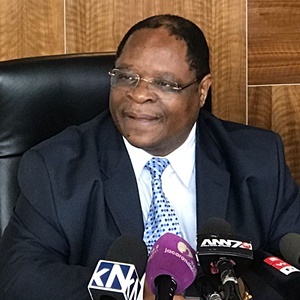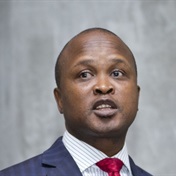
Today marks the commencement of the Commission of Inquiry into State Capture after plenty of political wrangling to block it.
It was back in February 2016 that the then outgoing public protector, Thuli Madonsela, released her report recommending that President Jacob Zuma has to establish a commission of inquiry to investigate state capture. This was after allegations surfaced that the Gupta family had become a state unto themselves, determining key decisions in government including how public funds were spent. Zuma, whose relationship with the Gupta family is said to have been key to appropriation of state resources by the family, automatically sought to block Madonsela's astute recommendation that he should not have a hand in appointing the chairperson of state capture commission. The timeline of this state capture story is something of Hollywood high end production.
In December 2017 the litigious Zuma lost to Madonsela as the High Court upheld the view that Zuma must establish the commission and allow Chief Justice Mogoeng Mogoeng to appoint its chairperson. Amidst this, Zuma's power in the ANC was waning as his tenure as the president of the party was coming to an end at party's highly contentious elective conference only days away.
The High Court gave him 30 days to establish a commission in the manner prescribed by Madonsela. Zuma wanted to take the matters further to the Constitutional Court to protect the executive prerogative to appoint the chair of a commission of inquiry.
In Zuma's mind: what kind of a commission would it be if its chair was not appointed by the president? The High Court's response to this question would simply be that any commission of inquiry of which the chair is not appointed by one Jacob Zuma has real prospects of carrying out a meaningful work. While the court did not exactly put it that way, the message was going in that direction.
Because of political pressure from within the ANC, outside the party among opposition parties, and across civil society, Zuma caved and established a Commission of Inquiry into State Capture on 9 January 2018. By then it was clear that the politically drowning president just had too many battles underway at the same time. He was being pushed to resign as the president of the country after Cyril Ramaphosa won the presidency of the ANC in December 2017.
A lot has happened since Madonsela recommended a state capture commission as the necessary step to understanding the extent of corruption that has been facilitated through political power. There has been a shift in terms of power dynamics within the ANC including the election of the new president of the ANC and the country. In addition, there has been wider publicising of the leaked Gupta-emails detailing the most complex network of impropriety recorded in recent human history.
South Africans were very angry to learn about state capture. I believe that the same level of indignation still exists today. However, there is today less unity among South Africans than was the case when people first heard about state capture. There are currently divisions along the racially charged issue of expropriation of land without compensation. There has been some social and political realignment in our society since Madonsela recommended the commission in 2016.
Within the ANC, there are those who seem to be willing to challenge the wholesale anti-corruption manoeuvres that are seen to be orchestrated by Ramaphosa and his allies, including Public Enterprises Minister Pravin Gordhan. A political project to push against the irritating and newly inaugurated anti-corruption supremos is reported to be underway. On Sunday, City Press reported that some Gupta-aligned individuals are resisting attempts to remove them from key state-owned entities. They allege political persecution.
Those who are resisting removal from key institutions because of their alleged improper relationship with the Guptas would certainly dismiss the idea that state capture exists, and they will offer their versions of the story. The commission will become a festival of allegations and counter allegations by different interests battling it out in South Africa. On one hand are the good guys who claim to have witnessed corruption by the Guptas while on the other hand is the group that seeks to disprove that the Guptas perpetrated state capture.
Today is the beginning of a festival of allegations and counter-allegations, and Judge Raymond Zondo and his team have a responsibility to help the nation to separate facts from fiction. For the first time in the history of this country, there is a wider inquiry which rests on the question as to who controls the state, a question that has always been addressed in abstract, but never practically. We just might be making history, whichever way you look at it.
- Ralph Mathekga is a Fellow at the SARChI Chair: African Diplomacy and Foreign Policy at the University of Johannesburg and author of When Zuma Goes and Ramaphosa's Turn.
Disclaimer: News24 encourages freedom of speech and the expression of diverse views. The views of columnists published on News24 are therefore their own and do not necessarily represent the views of News24.




 Publications
Publications
 Partners
Partners























